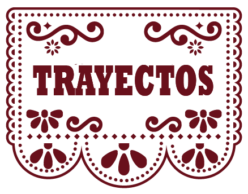Talking about responsibilities and giving recommendations/suggestions with tener que
Aimar, ¿cómo aprendo español?
La hermanita de Aimar, Ileana, está en un programa bilingüe de inmersión de español e inglés en Tejas. Tiene problemas con su español y Aimar le da consejos (advice). Lee sus consejos para aprender español en sus notas para su hermana. ¿Estás de acuerdo? ¿Qué otros consejos tienes? Also, pay attention to the verbs in bold. What do you notice about them?

1. En este texto, usamos el verbo tener. We already know this verb. What do you notice about it when Aimar uses it? What is she using it for?
As you can see from Aimar’s text, tener que is used to talk about things you need to do or to give advice/suggestions/recommendations. The verb tener is conjugated in the form we saw in previous modules, but now it is followed by que + a verb in the infinitive (e.g., Tienes que hablar más español con tus amigos.)
Te recomendamos ver este vídeo con más información sobre tener que: https://bit.ly/VideoVol22-18Trayectos.
2. Y tú y tus compañeros de clase, ¿qué tienen que hacer para aprender más español? Escribe dos cosas que tienen que hacer para mejorar (improve) su español. Usa el verbo tener que en primera persona del plural (nosotros).
Ahora usamos tener que. Vamos a Actividad 2-21. Responsabilidades. ¿Cuáles son tus responsabilidades esta semana? Escribe una lista de cuatro cosas que tienes que hacer esta semana para tus clases y otros aspectos en tu vida. También menciona dos responsabilidades de tu compañer@ de cuarto (él/ella), de tus amig@s (ellos/ellas) y de ti y tus amig@s (nosotros). Usa las formas de tener que. Tus padres y vos tienen que visitar el Museo de Arte de Houston porque su colección de arte moderno es fenomenal. With a classmate, prepare these conversations. You will need to use tener que and the vocabulary you learned in Más comunicación: La ropa. Include the following information. Estudiante A: You have a big celebration this coming weekend and are feeling anxious because it is a formal event at the university. You are asking your best friend for recommendations. You need advice about what to wear, how to get there, what to do. Give your friend information about the event and ask questions. Estudiante B: Your best friend has an upcoming formal celebration at the university and is feeling anxious. They need advice. Ask questions about the event, and provide recommendations on what to wear, what to do at the event, etc. using tener que + infinitive. ![]() ¡Manos a la obra!
¡Manos a la obra!![]() Actividad 2-22. Mi ciudad. A friend just texted you saying they will be visiting your city with their parents next month. Tu amig@ te pide recomendaciones para su visita. Con un@ compañer@, escribe 10 recomendaciones. Usa las formas de tener que para vos [tenés]/tú, ustedes y nosotros. Include suggestions for places of interest, restaurants, activities, etc. Don’t forget to use porque to justify your recommendations.
Actividad 2-22. Mi ciudad. A friend just texted you saying they will be visiting your city with their parents next month. Tu amig@ te pide recomendaciones para su visita. Con un@ compañer@, escribe 10 recomendaciones. Usa las formas de tener que para vos [tenés]/tú, ustedes y nosotros. Include suggestions for places of interest, restaurants, activities, etc. Don’t forget to use porque to justify your recommendations. ![]() Conversemos. ¿Qué me pongo?
Conversemos. ¿Qué me pongo?
Click on the following button to continue using your new vocabulary and structures.
Now it’s time to use everything we’ve learned in this module. Let’s move to

